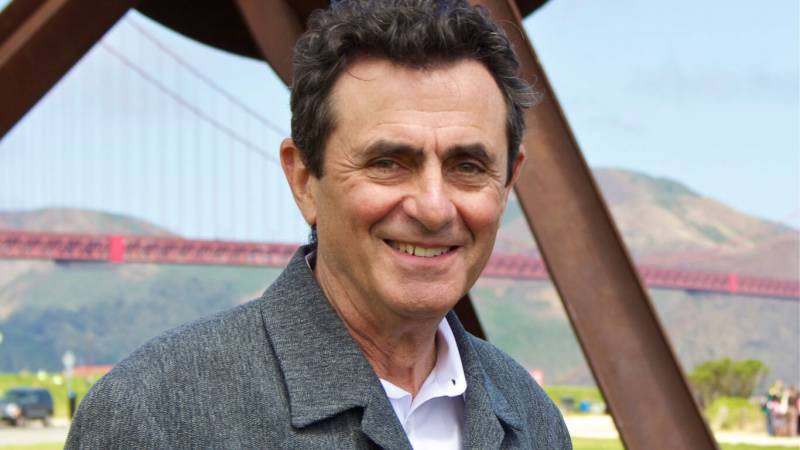“I’m not using the R-word,” he says of retirement. “You want to keep your options open and see. I don’t have any plans to do anything except slow down for a little while.” As such, he has no immediate plans to leave the Bay Area. (Hyperallergic previously reported Benezra received a $801,900 no-interest loan from SFMOMA in 2002 for his San Francisco home; he declined to comment on the terms of his contract with the museum and if the end of his employment would trigger repayment on that loan.)
While Benezra told the New York Times his decision to step down has nothing to do with controversies over the past year, his leadership of the 86-year-old museum has come under fire—from both inside and outside the institution—for large personnel cuts, staff experiences of racial inequity and SFMOMA’s handling of criticism during last summer’s protests against police brutality.
Benezra’s successor will inherit these issues, along with the financial fallout of the coronavirus pandemic. Most recently, the museum enacted 20% furloughs for all staff on Jan. 1. SFMOMA’s staff union OPEIU Local 29 achieved a memorandum of understanding with the museum to exempt the two lowest-paid classifications of its members, and delayed the furlough start date for union members until Jan. 22.
Just days ago, current SFMOMA staff launched a GoFundMe to provide mutual aid to furloughed and laid-off colleagues, citing the hardship of “ongoing, significant loss in salary” and the Bay Area’s high cost of living. The fund hopes to raise $50,000.
Benezra himself took a 50% salary reduction at the start of the pandemic (2018 tax filings show his annual compensation was over $1 million). But before the end of 2020, the board approved to lessen Benezra’s salary reduction to just 25%, starting Jan. 1. Despite the optics of furloughs coinciding with an increase in its highest-paid staff member’s pay, SFMOMA spokesperson Jill Lynch says Benezra’s pay cut remains the largest salary reduction taken by an American museum leader.
SFMOMA has suffered nearly a year without ticket sales. The museum closed in March 2020 due to the pandemic and reopened for only two months at the beginning of October. The museum hopes to reopen this spring, or as soon as the city of San Francisco lifts restrictions.
When that day arrives, SFMOMA is looking forward to hosting the retrospective Nam June Paik (the museum is the only U.S. venue for the exhibition) and the physical feat of moving Diego Rivera’s mural The Marriage of the Artistic Expression of the North and of the South on this Continent (aka Pan American Unity), from City College of San Francisco to the museum’s free, Howard Street-facing gallery.
In the meantime, the museum’s board of trustees will establish a formal search committee to identify a new director for SFMOMA. Today’s statement says the committee will accept “input from staff and the museum’s community” to evaluate “a diverse pool of candidates who share the goal of becoming a human-centered, community-driven museum.”
Benezra said it would not surprise him if the search takes as long as a year. The next director of SFMOMA will need a variety of skills that extend well beyond the curation and care of the museum’s collection. “Museums have become larger, more complex institutions,” he said. “The challenges are more difficult, and less related—in some ways—to the art that you came to work with.”
One of those challenges will be establishing the museum’s role in a post-pandemic world, now that audiences have grown more accustomed to viewing art and culture at a remove. Another will be enacting the museum’s DEI initiatives; a Diversity Action Plan is due to debut this spring.
“All our institutions have had to face really challenging, difficult situations having to do with racial equality,” Benezra said. “That’s a very important part of what museums have to be moving forward in terms of who we staff, what we collect, what exhibitions we mount. It’s a different time and museums are going to have to meet the moment.”


